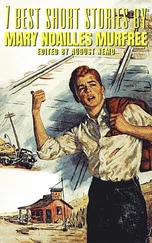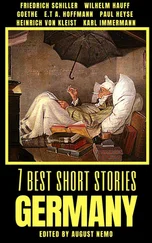Occult detective fiction combines the tropes of detective fiction with those of supernatural horror fiction. Unlike the traditional detective, the occult detective is employed in cases involving ghosts, curses, and other supernatural elements. Some occult detectives are portrayed as being themselves psychic or in possession of other paranormal powers.
Fitz James O’Brien’s character Harry Escott is a contender for first occult detective in fiction. A specialist in supernatural phenomena, Escott investigates a ghost in "The Pot of Tulips" (1855) and an invisible entity in "What Was It? A Mystery" (1859). The narrator of Robert Bulwer-Lytton’s novella "The Haunted and the Haunters; or, The House and the Brain" (1859) is another student of the supernatural who probes a mystery involving a culprit with paranormal abilities. Sheridan Le Fanu's Dr. Martin Hesselius appeared in "Green Tea" (1869) and later became a framing device for Le Fanu's short story collection In a Glass Darkly (1872). For most of its plot, The Hound of the Baskervilles, one of Sherlock Holmes's most well-known adventures, seems to belong in this genre - though in the end the villain turns out to be completely human and mundane, who deliberately created this misleading impression.
Thomas Carnacki may well be considered one of the first true occult detectives, as he combined both knowledge and experience of what he calls “the ab-natural” with scientific deductive method and equipment. The adventures of Carnacki have been continued by a number of writers, including A. F. Kidd in collaboration with Rick Kennett in 472 Cheyne Walk: Carnacki, the Untold Stories (2000), William Meikle in Carnacki: Heaven and Hell (Colusa, CA: Ghost House Press, 2011), Brandon Barrows in The Castle-Town Tragedy (Dunhams Manor, 2016), and others. In addition, writers Joshua M Reynolds and John Linwood Grant have each produced a separate series of stories which follow on from Carnacki's death, and feature occult detectives whose work relates to the original tales - The Adventures of the Royal Occultist and Tales of the Last Edwardian respectively.
Sax Rohmer's collection The Dream Detective features the occult detective Moris Klaw, who utilises "odic force" in his investigations. The occultist Dion Fortune made her contribution to the genre with The Secrets of Dr Taverner (1926), consisting of psychic adventures of the Holmes–like Taverner as narrated by his assistant, Dr Rhodes. Aleister Crowley's Simon Iff featured in a series of stories, some of which have been collected in book form. Dennis Wheatley's occult detective was Neils Orsen.
Though never large, the occult detective subgenre grew to include such writers as Seabury Quinn (with his character Jules de Grandin); Manly Wade Wellman, whose character John Thunstone investigated occult events through short stories in the pulps, collected in The Third Cry to Legba and Other Invocations (2000) and in the novels What Dreams May Come (1983) and The School of Darkness (1985); and "Jack Mann" (E. C. Vivian), who chronicled the adventure of his occult detective Gregory Gordon George Green, known as "Gees", in a series of novels. Pulp writer Robert E. Howard created stories about Steve Harrison, an occult detective, in the Strange Detective Stories magazine. Margery Lawrence created the character Miles Pennoyer in her occult detective stories collected in Number Seven, Queer Street.
Modern writers who have used the occult detective theme as a basis for supernatural adventures include Peter Saxon (The Guardians series), John Burke (Dr Alex Caspian), Frank Lauria (Dr Owen Orient), Lin Carter (Anton Zarnak), and Joseph Payne Brennan (Lucius Leffing).
The occult detective theme has also been used with series characters devised by such contemporary writers as Douglas Adams (Dirk Gently), F. Paul Wilson (the Repairman Jack series), Steve Rasnic Tem (Charlie Goode), Jessica Amanda Salmonson (Miss Penelope Pettiweather), David Rowlands (Father O'Connor), Rick Kennett (Ernie Pine), Brian Lumley (Titus Crow), Robert Weinberg (Sydney Taine), Simon R. Green (John Taylor), Steve Niles (Cal McDonald), Mike Carey (Felix Castor), Mercedes Lackey (Diana Tregarde), Laurell K. Hamilton (Anita Blake), Brian Keene (Levi Stoltzfus), Jonathan L. Howard (Johannes Cabal), and Jonathan Maberry (Sam Hunter). Jim Butcher's best-selling book series The Dresden Files is another well-known example. Randall Garrett's Lord Darcy stories and Dean Koontz's The Haunted Earth are examples in which occult detectives operate in a world where the occult is simply an accepted part of mundane life. Assaph Mehr's Stories of Togas, Daggers, and Magic combine historical mystery detective in ancient Rome with fantasy and occult elements.
A useful recent anthology collecting specimens of the genre is Mark Valentine, ed., The Black Veil & Other Tales of Supernatural Sleuths (ISBN 978-1-84022-088-9), published by Wordsworth Editions in 2009. Earlier themed anthologies include Stephen Jones, ed., Dark Detectives: Adventures of the Supernatural Sleuths (Fedogan & Bremer, 1998) and Peter Haining, ed., Supernatural Sleuths: Stories of Occult Investigators (William Kimber, 1986).
The magazine Occult Detective Quarterly (Electric Pentacle Press, 2016) specialises in presenting a wide range of new occult detective tales set in a range of time periods, with the occasional pastiche of classic figures from this branch of fiction.
The Gateway of the Monster
William Hope Hodgson
In response to Carnacki’s usual card of invitation to have dinner and listen to a story, I arrived promptly at 427, Cheyne Walk, to find the three others who were always invited to these happy little times, there before me. Five minutes later, Carnacki, Arkright, Jessop, Taylor, and I were all engaged in the “pleasant occupation” of dining.
“You’ve not been long away, this time,” I remarked, as I finished my soup; forgetting momentarily Carnacki’s dislike of being asked even to skirt the borders of his story until such time as he was ready. Then he would not stint words.
“That’s all,” he replied, with brevity; and I changed the subject, remarking that I had been buying a new gun, to which piece of news he gave an intelligent nod, and a smile which I think showed a genuinely good-humored appreciation of my intentional changing of the conversation.
Later, when dinner was finished, Carnacki snugged himself comfortably down in his big chair, along with his pipe, and began his story, with very little circumlocution:—
“As Dodgson was remarking just now, I’ve only been away a short time, and for a very good reason too—I’ve only been away a short distance. The exact locality I am afraid I must not tell you; but it is less than twenty miles from here; though, except for changing a name, that won’t spoil the story. And it is a story too! One of the most extraordinary things ever I have run against.
“I received a letter a fortnight ago from a man I must call Anderson, asking for an appointment. I arranged a time, and when he came, I found that he wished me to investigate and see whether I could not clear up a long-standing and well—too well—authenticated case of what he termed ‘haunting.’ He gave me very full particulars, and, finally, as the case seemed to present something unique, I decided to take it up.
“Two days later, I drove to the house late in the afternoon. I found it a very old place, standing quite alone in its own grounds. Anderson had left a letter with the butler, I found, pleading excuses for his absence, and leaving the whole house at my disposal for my investigations. The butler evidently knew the object of my visit, and I questioned him pretty thoroughly during dinner, which I had in rather lonely state. He is an old and privileged servant, and had the history of the Grey Room exact in detail. From him I learned more particulars regarding two things that Anderson had mentioned in but a casual manner. The first was that the door of the Grey Room would be heard in the dead of night to open, and slam heavily, and this even though the butler knew it was locked, and the key on the bunch in his pantry. The second was that the bedclothes would always be found torn off the bed, and hurled in a heap into a corner.
Читать дальше

![Коллектив авторов - Best Short Stories [С англо-русским словарем]](/books/26635/kollektiv-avtorov-best-short-stories-s-anglo-thumb.webp)










